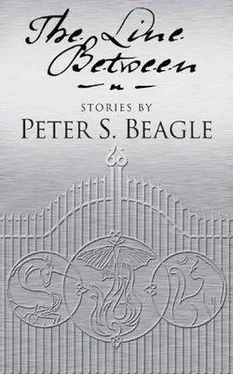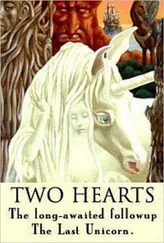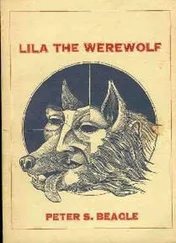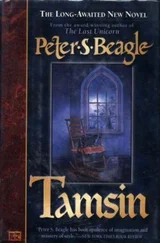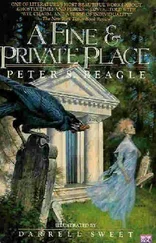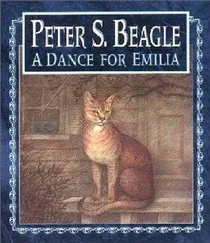Peter Beagle - The Line Between
Здесь есть возможность читать онлайн «Peter Beagle - The Line Between» весь текст электронной книги совершенно бесплатно (целиком полную версию без сокращений). В некоторых случаях можно слушать аудио, скачать через торрент в формате fb2 и присутствует краткое содержание. Жанр: Фэнтези, на английском языке. Описание произведения, (предисловие) а так же отзывы посетителей доступны на портале библиотеки ЛибКат.
- Название:The Line Between
- Автор:
- Жанр:
- Год:неизвестен
- ISBN:нет данных
- Рейтинг книги:5 / 5. Голосов: 1
-
Избранное:Добавить в избранное
- Отзывы:
-
Ваша оценка:
- 100
- 1
- 2
- 3
- 4
- 5
The Line Between: краткое содержание, описание и аннотация
Предлагаем к чтению аннотацию, описание, краткое содержание или предисловие (зависит от того, что написал сам автор книги «The Line Between»). Если вы не нашли необходимую информацию о книге — напишите в комментариях, мы постараемся отыскать её.
The Line Between — читать онлайн бесплатно полную книгу (весь текст) целиком
Ниже представлен текст книги, разбитый по страницам. Система сохранения места последней прочитанной страницы, позволяет с удобством читать онлайн бесплатно книгу «The Line Between», без необходимости каждый раз заново искать на чём Вы остановились. Поставьте закладку, и сможете в любой момент перейти на страницу, на которой закончили чтение.
Интервал:
Закладка:
«The phone would ring late at night, and I'd hear this hissing, sinister, Bulgarian secret–service voice telling me to be at Penn Station or Grand Central with a rose in
my teeth at nine the next morning, and to look for a man in dark glasses carrying an umbrella, a rubber duck, and a rolled–up copy of Der Spiegel. And we'd each skulk around the station, with peo–ple staring at us, until we met, and wind up taking Amtrak to anywhere—to Tarrytown or Rhinecliff or Annandale—still being spies on the Orient Express the whole way. We'd spend the night, go out on a river tour, visit the old estates and museums, buy really dumb souvenirs, and never once break character until we walked out of the station again—back in the city, back in real life. And that was an Adventure.»
Her eyes never filled when she talked to me about their outings, but they stopped seeing me, stopped seeing Millamant roaming her old home step by crouching step, stalking ghosts. Emilia's eyes were doing just the same. «We took turns—one time I rented a car and took him to the cav–erns in Schoharie County, up near Cobleskill. We were agents who didn't speak each other's language, so we had to make up other ways to commu–nicate.» Millamant climbed into her lap, batted at her chin, bit it lightly, and put her paws on Emilia's shoulders. Emilia put her aside, but she kept coming back, meowing fiercely.
It lasted almost a year and a half, counting two separate weeks of vacation: one spent being international spies in Saratoga Springs, and one being contract assassins trailing a famously vicious theater critic who lived in Kingston. «We were always aliens, one way or another, always for–eigners, outsiders, Martians. That was the whole thing about Adventures—just having each other, and our secret mission.»
On the last day, with everything of Sam's packed up, sold, given away, donated or dumped, and the apartment echoing, even with our breath, we made one last pass through the shrunken Dark Continent in search of Sam's guitar. We never found it. I still worry over that, at very odd hours, wondering whether he might have given it up because of what I said to him on that bad night long ago. I swept the floor while Emilia picked up our own debris and shoehorned an unusually recalcitrant Millamant into her traveling case. Then we hugged each other goodbye, and stood back, awkward and unhappy, in that cold, empty place.
«Write," she, said. «Please.» I nodded, and Emily said, «There's only you for me to talk to about him now.»
I hugged her again. Inside the case Millamant was making a sound like a jammed garbage disposal, and Emilia laughed, bending to admon–ish her through the wire mesh. Her dark hair was gray with dust, but she looked very young in that moment, even her eyes.
For the next year—almost two—we wrote more letters than I've ever exchanged with anyone except Sam, and that includes anybody I ever married. How Emilia managed to balance her output against her news–paper work, I can't guess; it was tricky enough for me—especially once Christmas Carol rehearsals started—to drag myself out of Bob Cratchit's intolerably benign consciousness back into my own sullen grief. And after wretched Cratchit came Canon Chasuble, Mr. Peachum, Grandpa
Vanderhof, St. Joan's Earl of Warwick … actually that wasn't a bad run of roles, thinking about it. Though I should have at least read for Macheath.
But I still wrote to Emilia two and three times a week, unearthing foi her sake, and my own, moments as long forgotten as Sam's youthful ter–ror of FBI agents coming back to interrogate his father once more aboul Mike's ten–minute membership in the Communist Party. I rooted through tattered, filthy cardboard boxes to find fragments of the songs we'd written together. I even woke her up one night, calling with a remembrance of our one attempt at fishing, out on Sheepshead Bay, that couldn't wait until morning. Irrational, surely, but I was suddenly afraid of forgetting for another forty years.
Emilia wrote to me about living without Adventures. She wrote about answering the phone at work or at home, knowing that she might hear any voice on the planet except the whisper of the mad Bulgarian spy, enticing her away to ridiculous escapades in the dark wilds of the Catskills.
But I don't believe it, any of it, either way. I don't believe that it'll be him on the phone, but at the same time I still can't believe that I won't ever hear him again. Nothing makes sense. I do my work, and I go home, and I cook my meals and eat them, and I pick up the phone when it rings, but I'm really always waiting for the call after this one…
Once she wrote, «Thank you for always calling me Emilia. I liked her so much—she was so passionate and adventurous, so different from Emily. I was sure Emilia died with Sam, but now I don't know. Maybe not.»
For my part, writing usually at night, often when rehearsals had run late and I was weary enough that memory and language both tangled with dream, the stories I told of Sam and myself were as true as phoe–nixes, as imaginary as computers. Things we had done flowed together with things we had always meant to do, things that I think I felt we would have done, once Emilia believed them. I recalled for her the time that Sam had withered a school bully with a retort so eviscerating that it would have gotten us both killed had it ever actually been spoken. I even dredged up a certain Adventure of our own, in which we tracked a celebrated Russian poet (recognized crossing Ninth Avenue by Sam, of course) back to his hotel, and then—at Sam's insistence—returned early the next morning to haunt the elevator until he came down to breakfast, which we wound up sharing with him. «He defected a few days later, and got a university gig in San Diego. Sam always felt it was the Froot Loops that did it.» Well, Sam did spot the poet on the street, and we did follow him until we lost him in Macy's. And Russian poets did defect, and maybe it all practically happened just that way. Why shouldn't it have?
What Emilia was after in my memories of Sam, what she needed to live on, was no different from what I needed still: not facts, but the accu–racy under and around and beyond facts. Not a recital of events—not even honesty—but truth. Resumes have their place, but there's no nour–ishment in them.
Emilia arrived weary at the Oakland Airport, looking as small and wind–blown as she had at Sam's funeral. But her eyes were bright, and when she smiled to recognize me I saw her meeting my friend, her lover, in Penn Station to embark on one more Adventure. It wasn't entirely meant for me, that smile.
Millamant herself had apparently been quite docile on the flight from New York—even banging around on the luggage conveyor belt didn't seem to have fazed her. Uncaged in my house, she didn't exhibit any of the usual edginess of a cat in strange surroundings: she stretched here, strolled there, leisurely investigated this and that, as though getting reacquainted, and finally curled herself in the one good chair, plainly wait–ing for the floor show to begin. I looked at Emilia, who shrugged and said, «Like the washing machine when the repairman arrives. Wait. You'll see.»
«See what? What the Baptist hell are we waiting for?»
«Dinner," Emilia said firmly. «Take me out to that Caribbean place—I don't know the name. The one where you took Sam.»
I hadn't been back since the time we celebrated his being down to two cigarettes a day. I ordered the ropa vieja again. I don't remember what Emilia had. We talked about Sam, and about her work for the Bergen County newspaper—she'd recently won a state journalism award for a series on day–care facilities—and I went into serious detail regarding the technical and social inadequacies of the Pacific Rep's new artistic direc–tor. We didn't discuss Millamant at all.
Читать дальшеИнтервал:
Закладка:
Похожие книги на «The Line Between»
Представляем Вашему вниманию похожие книги на «The Line Between» списком для выбора. Мы отобрали схожую по названию и смыслу литературу в надежде предоставить читателям больше вариантов отыскать новые, интересные, ещё непрочитанные произведения.
Обсуждение, отзывы о книге «The Line Between» и просто собственные мнения читателей. Оставьте ваши комментарии, напишите, что Вы думаете о произведении, его смысле или главных героях. Укажите что конкретно понравилось, а что нет, и почему Вы так считаете.
